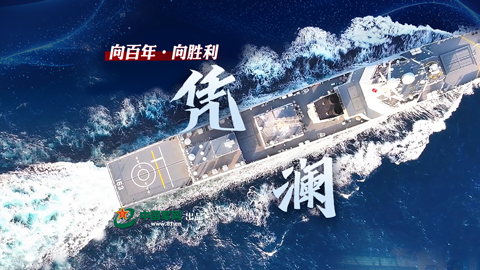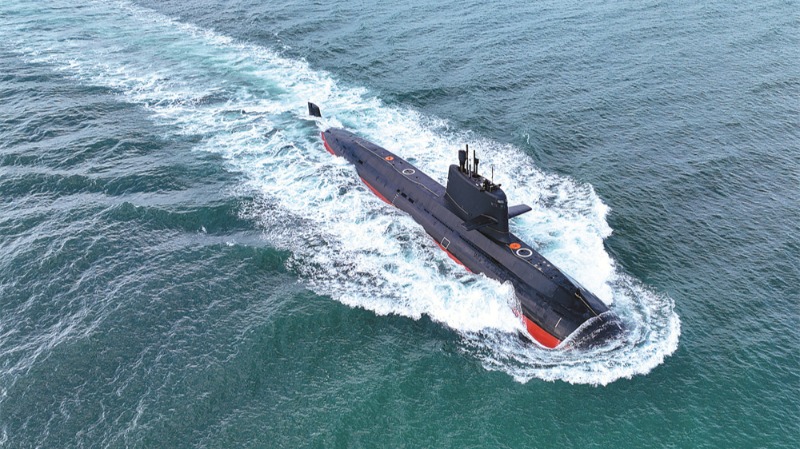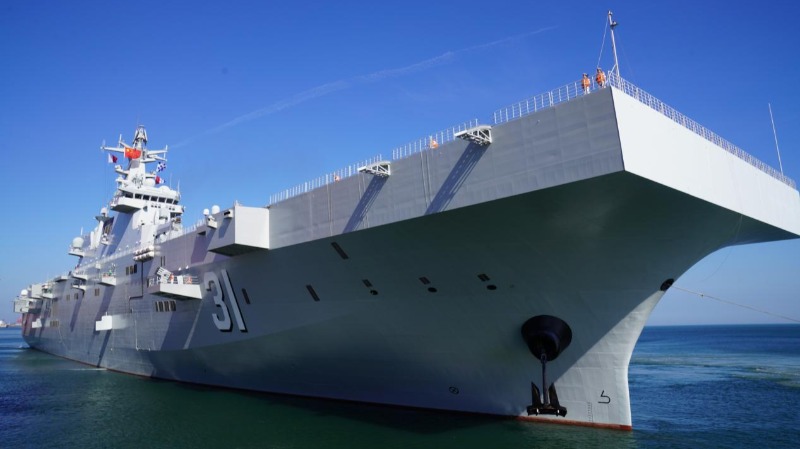By Lin Yongxin
Since last year, the Philippines has frequently launched provocative and infringing actions in the South China Sea, continuously escalating the security situation in the region.
On the one hand, the Philippines has repeatedly transported and reinforced building materials to the illegally grounded warship on China's Ren'ai Jiao. It has also repeatedly illegally intruded the reefs of China's Huangyan Dao and its adjacent waters, and invaded the adjacent waters of China's Houteng Jiao under the pretext of "fishing protection". Additionally, it has hyped up the issue and smeared and distorted China's legitimate defense of maritime rights and interests, aiming to portray itself as "weak" and "bullied" to attract international attention.
On the other hand, the Philippines has strengthened its security cooperation with non-regional powers, such as the United States, Japan, Australia, and India. It has established a so-called "cooperation mechanism" to enhance its own military and paramilitary capabilities through the support of external forces while backing its illegal infringements. On April 7, the United States, Japan, Australia, and the Philippines conducted their first joint naval exercise in the South China Sea, which demonstrated the Philippines' involvement in stirring up the situation in the region with the help of non-regional forces.
The Marcos government is treading on a dangerous path of jeopardizing the peace and stability of the South China Sea region for its own interests. The countries in the region should not underestimate the destructive power of the Philippines' collaboration with non-regional forces and its impact on the security of the South China Sea region.
First, the Philippines' policy shift in the South China Sea is becoming a pivot for external forces to provoke the situation in the South China Sea. The so-called bilateral, minilateral, and multilateral "cooperation mechanisms" established by the Philippines in collusion with external forces have become the most prominent destabilizing factors in the South China Sea situation. With the upcoming trilateral summit between the United States, Japan, and the Philippines, the United States and Japan have clearly stated their intention to enhance their defense relations with the Philippines significantly.
Second, the Philippines government's unlawful actions in the South China Sea may hinder the progress of China and ASEAN countries in jointly establishing a security cooperation framework for the South China Sea. Over the years, China and ASEAN countries have engaged in valuable explorations and practices regarding security cooperation in the South China Sea, and have accumulated some experience. To appropriately address the security concerns of ASEAN countries, China has actively engaged in negotiations with them, signed and implemented the Declaration on the Conduct of Parties in the South China Sea (DOC), and deepened practical cooperation in fields such as marine environmental protection, scientific research, search and rescue, and law enforcement. These efforts and practices have laid the foundation for long-term peace and stability in the South China Sea.
The series of infringements by the Philippines in the South China Sea violated the provision in the Declaration on the Conduct of Parties in the South China Sea stipulating that "the Parties undertake to exercise self-restraint in the conduct of activities that would complicate or escalate disputes and affect peace and stability including, among others, refraining from action of inhabiting on the presently uninhabited islands, reefs, shoals, cays, and other features." Moreover, these acts undermined the mutual trust basis for communication over the South China Sea issue and may have spillover effects. This will inevitably have a negative impact on the smooth progress of the negotiations of the Code of Conduct in the South China Sea (COC) by increasing the disagreement between the parties concerned on the specific clauses of the COC.
Countries in the South China Sea region should not underestimate the Philippines' gradual and persistent infringement, especially the gradual erosion of the foundation that supports regional security and mutual trust. At the same time, the regional countries should exercise caution regarding the Philippines' potential to escalate the security situation in the South China Sea into a spiral dilemma.
(The author is the Director of the Research Center for Maritime Silk Road, National Institute for South China Sea Studies.)
Editor's note: Originally published on china.com.cn, this article is translated from Chinese into English and edited by the China Military Online. The information and opinions in this article do not necessarily reflect the views of eng.chinamil.com.cn.




















